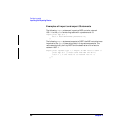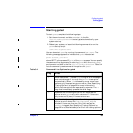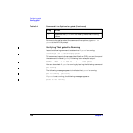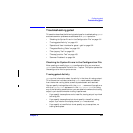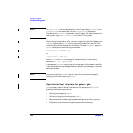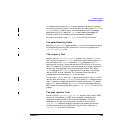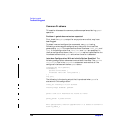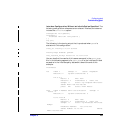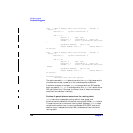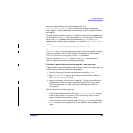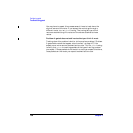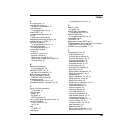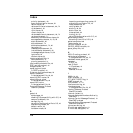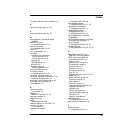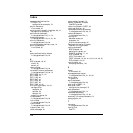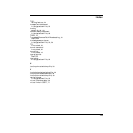
Configuring gated
Troubleshooting gated
Chapter 3 107
Normally, gated deletes the route configured in the
/etc/rc.config.d/netconf file. To solve this problem, configure a
static default route as described in the section “Installing Static Routes”
on page 90.
Another common scenario occurs in networks where all the gateways do
not implement the gated routing protocols. In this situation, routes that
do not use gated gateways are not confirmed by gated, and gated
deletes them unless a static statement is included in /etc/gated.conf:
static {
13.0.0.0 mask 0xff000000 gateway 15.14.14.14 ;
};
The static entry in this example ensures that the local system includes
a route to network 13.0.0.0 even though the gateway to that network
(15.14.14.14) is not running any of the gated protocols.
You can include the restrict clauses in the export statements to
restrict these extra routes from being advertised.
Problem 3: gated adds routes that appear to be incorrect.
If gated adds routes that appear to be incorrect, track the original source
of the route by completing the following steps:
1. Start by looking at the routing table maintained by gated.
2. Send gated a SIGINT signal, and look at the information output in
the /var/tmp/gated_dump file.
3. Look for the entry of the route in question. The entry identifies the
protocol over which this route was heard and the first-hop router.
The first-hop router is likely to be the immediate source of the
information.
Perform one of the following actions:
• If the route was learned over RIP, use /usr/sbin/ripquery to query
the first-hop router for the route. That router may claim to have
heard the route from another router.
• If the first-hop router is another host running gated, have that host’s
gated dump its routing table to find out where it learned about the
route.



